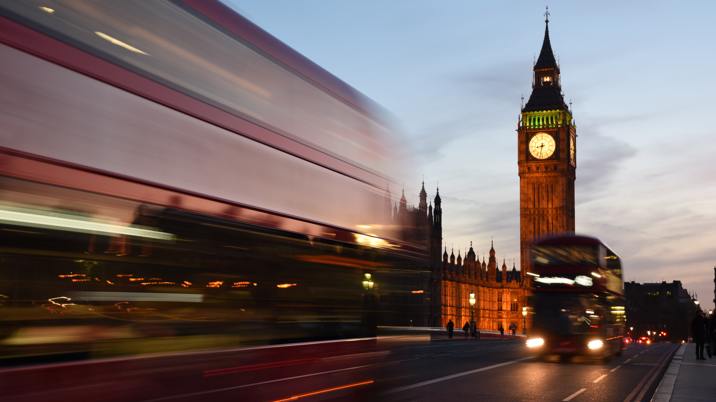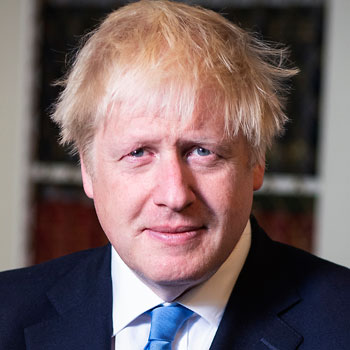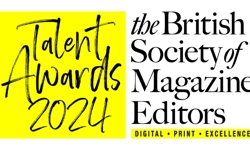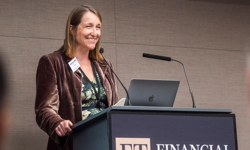
Each morning, I’d catch the 277 to my office in the Docklands. Sometimes I’d notice there was just one other passenger on the top deck, sitting right up front, above the driver’s cabin. He was very distinctive, with a shock of barely combed blonde hair, his feet in scuffed black shoes up on the windowsill. He’d have a huge holdall full of all the day’s papers which he would scan on the short journey to Canary Wharf. It was the late ’90s. We were both scruffs on our way to jobs in journalism, and we would both become magazine editors. But only one of us would be prime minister.
Do magazine editors make good prime ministers? Do columnists make good politicians? There are plenty examples of journalists turned politicians of all hues. Johnson was editor of the Spectator of course, and so was Nigel Lawson back in the 1960s. There’s plenty more recent examples, from Ruth Davidson who was at BBC Scotland, to Sarah Palin who started as a sports journalist. In history, Mussolini edited several Socialist Party papers, while Michael Foot edited the Evening Standard during the war. The most famous of all, of course, was Winston Churchill who was Boer War correspondent for the Morning Post. He may have inspired Johnson to ask for the war correspondent job at the Telegraph in the 1990s, which editor Max Hastings turned down to make him political columnist instead.

Michael Gove was a leader writer on the Times and Ed Balls a leader writer for the FT – as was Lawson too. Nick Clegg also worked at the FT. In fact, the FT seems to have the highest number of journalists turned politicians, as does the role of leader writer. Writing leaders allows time to think through and analyse the biggest and thorniest of issues – useful for formulating and articulating policy positions. And if you’re not sure what view to take, you could write two versions of opposing views, as Johnson famously did on the UK leaving the EU: one for, one against. Then see how they stack up and decide which one to go for.
Newsroom pressures can edge a reporter to stretch a story idea or worse: Johnson was sacked as a Times trainee for making up a quote. Or the pressure of a deadline and producing a good read leads a columnist to pick and choose facts to suit an argument’s flow - or to just leave them out altogether. And in the digital age, opinion goes further when it’s simpler, stronger, or extreme even. Sadly, there seems to be little room left for nuance or doubt. When it’s just an opinion, that may not much matter. But take that into politics and it tips over into the public narrative, even policy, and it becomes a problem.
A way with words
Journalists are usually expected to be objective, analytical and non-partisan. But they also publicise, push, persuade and lead opinion. Snappy headlines and strong slogans have much in common. They both boil an issue down to its essentials and serve it up in a way people can relate to. A headline or coverline might make them smile. A slogan might be a call to action for people to rally around and magnify through the media. Whether it’s ‘Up Yours Delors’ or ‘Get Brexit Done’, they both require few words and direct language. Big numbers make strong headlines. One like ‘£350m a week’ helps a slogan on the side of a campaign bus too, especially if it’s exaggerated to cause a stir.
Yet headlines for humans are only part of a story’s success; search engine optimisation for machines matters too. Remember the bizarre 2019 interview in which Johnson talked about building and painting model buses? Could the apparent weirdness be explained by an SEO strategy? Could he have been advised to say something notable about buses in the interview in a cunning attempt to manipulate Google results on searches for the infamous Brexit campaign bus? It’s no less strange than any alternative explanation and would reveal an imaginative approach to SEO.
A 2020 survey by Ipsos found only 15% of the public trusted politicians, followed by 16% for government ministers, then 23% for journalists – all trusted less than estate agents or private landlords. Can you guess the only profession trusted less than politicians or journalists? That was advertising executives (at 13%).
Yet journalism in my experience is full of well-intentioned people. No one chooses it for the money. Some may like the power, but there’s not much of that left in journalism as it’s now all about social media ‘influencers’ and journalists are not the information brokers they once were. Of those I have known, most picked it at least partly on principle: to hold authority to account, expose the truth, shed light into dark places and all the other cliches. More controversially, I think many politicians want to make the world a better place too. So, journalists enter politics because they want to change the world for the better. Or just because they want more power. Take your pick.
This article was first published in InPublishing magazine. If you would like to be added to the free mailing list to receive the magazine, please register here.












